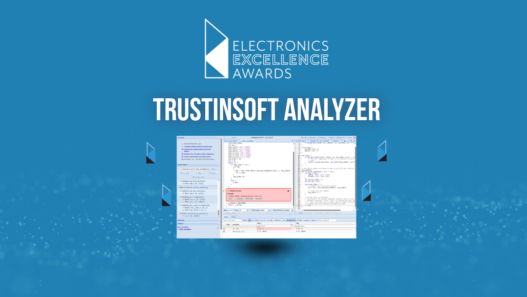And while Thailand and Vietnam are seen by some as more viable options, the local Indonesian market, with a population of 260 million, would make it attractive for consumer goods even without strict government regulations that say, if you want to sell in Indonesia then 40% of the end product has to be made there.
This has already led to mobile phone makers such as Apple and Samsung having factories in the country, but now the government wants to go further by developing the country into a research and development hub.
“So far what we have got are mostly joint ventures with local companies, but keeping the big brand name, from Japan or South Korea,” said Baki Lee, Project Director at Gem Indonesia, the organiser of May’s Inatronics show in Jakarta. “Our main competitor is Thailand, the biggest factory in southern Asia. But now many are moving to Indonesia because our labour costs are lower and we have a big population.”
The 40% restriction applies to any company selling more than 10,000 units a year into the country. The local content is usually the likes of cables, mouldings and PCBs – Indonesia has a very strong cable industry. They also have to meet SNI (Standard National Indonesia) if they are selling more than 10,000.
“New players coming into the market can test the water if they are selling less than 10,000,” said Lee. “They don’t need a factory here, but any more than that and they will.”
And for consumer electronics, it is a worthwhile market to get into with annual mobile phone sales slightly higher in numbers than the 260 million population.
“Everyone wants to change their phone,” said Lee. “They want the latest one. We are a consumer country. Everyone wants to build their smartphone factory here. The biggest is Samsung. Apple is here too. We also have Polytron and LG.”
Building for the future
A lack of an export agreement between Taiwan and Indonesia has also seen a number of Taiwanese companies building factories in the country. This has been boosted by tax incentives for those investing more than $200,000 in a factory. Two years ago, the government introduced tax holidays of up to ten years as the norm with the option of extending this to 25 years in some circumstances. They can also apply to have an import tax of zero for materials being used in the factory.
“We need this because we are competing with Vietnam and Thailand to attract companies from China and Taiwan,” said Lee. “Also, some electronics companies in China are not allowed to export to Europe so they build their factories in Indonesia to get round that.”
However, while the country is attracting manufacturing, Lee admits that it is not so strong when it comes to developing the technology. That could soon change.
“The government has a long term plan that by 2030, Indonesia must have research centres for high end technology,” said Lee. “They are cooperating with big companies such as Apple, which is going to build a research centre in Indonesia this year.” The government is also backing the establishment of specialist electronics departments in universities.
And the country knows that to move forward these days it must embrace the Internet of Things (IoT), especially the big data aspects. To meet this it has established the Asosiasi Big Data Indonesia (ABDI). It is also aware of the dangers.

“The amount of data is still growing exponentially,” said Rudi Rusdiah, CEO of the ABDI. “But it is only the tip of the iceberg when you look at Facebook and Google. The rest is all below that, such as in the dark web where you find the criminals and drug dealers. There are so many people producing data on the internet.”
He also acknowledged that data does not have to be big to be important. “Small data is more structured and you can do analytics,” he said. “Big data is semi-structured but it must be an asset to a company. You need to get value out of the data and the analytics must be fast.”
He said what was commonplace for businesses was to have the data but not knowing how to integrate it into what else they were doing. “They need to get good value out of the data,” said Rusdiah. “They need to learn how to monetise the data.”
Because of this he said the ABDI was adopting a SMART strategy: S – Start with Strategy; M – Mine and Measure the data; A – Analyse the data; R – Report the Results; and T – Transform the business with decision making abilities.
Thinking differently
“Big data represents a new way of thinking,” he said. “This is not just about technology.” Hotels, he said, were a good example of using data to match supply and demand for rooms. Taxi companies are also being digitised with the likes of Uber, which doesn’t have vehicles but does own data. “We are moving from hindsight to insight to foresight,” he said.
In Indonesia, big data is being used to help the agriculture industry. The country has around 30 million farms and big data is being used to help increase crop yields. The country’s tax office has also adopted big data.
And in the Kesehatan district of Indonesia the health service has started to use big data in areas such as x-rays.
“Here, protecting the data is important,” said Rusdiah. “That is why ransomware attacks are targeting hospitals.”
He said Indonesia was also looking at how other countries were using big data, notably Boston in the US where the use has helped reduce crime by nearly half and in Singapore for controlling traffic, particularly buses.
“In Jakarta, the registered population is six million, similar to Singapore, and we are trying to get more people to use public transport to reduce traffic jams,” he said. “We are looking at analysing the traffic to help people know how long it will take them to get to their destination.”
As part of that process, Jakarta Smart City was established in 2015 to look at all aspects at improving life in the city with the particular deadline of improving the infrastructure in time for next year’s Asian Games, which are being held in Indonesia. Part of that is collecting data from all the transactions across the city and using the analysis of that data for policy making.
This is being done through the introduction of the Jakarta One Card, a payment card that can be used for various transactions.
“This consists of a registered card and an anonymous card combined,” said Daniel Giovanni, Communications Manager at Jakarta Smart City. “The current Indonesian president – Joko Widodo – was once the governor of Jakarta and he had ideas of how to use data and IT in the city.
Since then, we have been collecting data on the complaints people make and using that to help decide policies.”
One aspect of this was the creation of a mobile phone app to let citizens report problems. It used to take an average of more than 170 hours to resolve reported problems such as illegal garbage dumping and so on. By December last year that had come down to nine hours.
Conclusion
While visitors to Jakarta may be unimpressed by the traffic jams and the poor state of roads and pavements, beneath the surface the country is looking to improve its infrastructure to become a more attractive venue for electronics companies to establish not just an office but factories and research and development facilities. With strong government incentives, the country has the potential to succeed in becoming a high-tech hub in south-east Asia.





